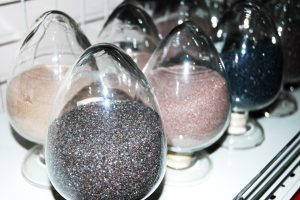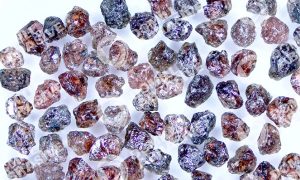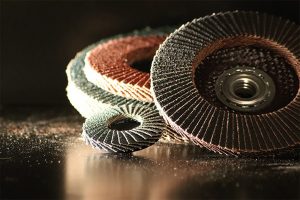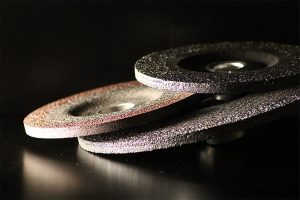Home / News & Blog / Abrasive Blog / Applications of Brown Fused Alumina in Abrasives and Refractory
Brown Fused Alumina, also known as fused brown corundum, or emery, is a brown artificial corundum made of high-quality bauxite, carbon materials, and Iron chips that are reduced by electric melting in an electric arc furnace, so it is named Brown Fused Alumina ( also called brown corundum ). The main chemical composition of brown fused alumina is Al2O3, and it also contains a small amount of Fe, Si, Ti, and so on. Brown Fused Alumina is more widely used in abrasives and refractory materials, because of its good performance, wide range of applications, and cheap price.




Sandblasting – abrasive hardness moderate, high density, no free silica, toughness is good, is the ideal “environmental protection” type sandblasting material, which is widely used in aluminum, copper profile glass, washed jeans precision mold, and other fields.
Free grinding – grinding grade abrasives, used in picture tubes, optical glass, monocrystalline silicon, lens, watch glass, crystal glass, jade, and other fields of free grinding, are widely used in the domestic advanced grinding materials.
Resin abrasives – abrasives have suitable color, good hardness, toughness, suitable particle section type, and cutting edge retention, applied to resin abrasives, the effect is ideal.
Coated abrasives – brown fused alumina are the raw materials of sandpaper, sand cloth, and sand belts;
Hydraulic cutting – abrasive as the cutting medium, relying on high pressure hydraulic jet for basic cutting, used in oil (natural gas) pipelines, steel, and other parts of the cutting, which is a new, environmentally friendly, safe cutting method.
Due to high-temperature resistance, corrosion resistance, high strength, and other properties, it is used to pour steel sliding nozzle, smelting rare metals, special alloys, ceramics, iron blast furnace lining (wall and pipe); Physical and chemical utensils, spark plugs, heat resistant and oxidation resistant coating.
Due to the characteristics of high hardness, good wear resistance, and high strength, in the chemical system, used as a variety of reaction vessels and pipelines, chemical pump components; Do mechanical parts, and all kinds of molds, such as wire drawing die, extrusion pencil core die mouth, etc.;
Brown fused alumina insulation materials, such as corundum light brick, and fiber products, are widely used in a variety of high temperature furnace walls and furnace tops, with both high-temperature resistance and heat preservation
Brown Fused Alumina has the characteristics of no initiation, no pulverization, and no cracking in the application process. In particular, the cost performance of corundum is much higher than that of traditional corundum, which makes it a better aggregate and filler for corundum refractory.
Functional fillers – mainly used for automotive brake parts, special tires, special construction products, and other collars can be used in building highway pavement. The airstrip. The dock. Parking. Industrial floor. Sports venues and other wear-resistant materials;
Filter media – is a new application field of abrasives, using granular abrasive as the bottom medium of the filter bed to purify drinking water or wastewater, is a new type of water filtration material at home and abroad, especially suitable for non-ferrous metal beatification: oil drilling mud weight agent.